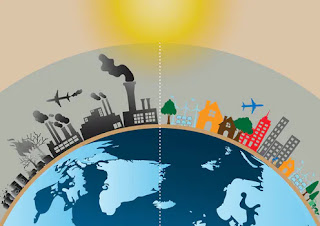Monday, 28 June 2021
Friday, 25 June 2021
Beyond COP 26: Towards more effective international climate architecture
This blog reports on a seminar in the Political Economy of European Climate Action series, hosted by the European Studies Centre of St. Antony’s College Oxford, on June 14, 2021, which discussed whether the COP process can be made more effective to deliver climate goals. The speakers were Selwin Hart (ASG for Climate Change, UN) and Benito Müller (Professor, Environmental Change Institute, University of Oxford); the discussant was Adrienne Cheasty of EuPEP; and the session was chaired by Hartmut Mayer, Director of the European Studies Centre at St Antony’s College, Oxford.
Click here for the podcast of this session
Selwin Hart started by outlining the stakes, quoting the UN Secretary General as saying that 2021 would be a make-or-break year for climate action, with COP26 in Glasgow in November. We now have less than a decade to achieve effective emissions reduction before it becomes too late to cap global warming below 2°C.
Wednesday, 9 June 2021
Tuesday, 8 June 2021
Saving the planet: The ethical and economic case for regenerative agriculture
Philip Lymbery said that about 10,000 years ago human beings changed from being hunter-gatherers into settlers relying on agriculture. Then, a generation ago, mankind tore up its contract with the soil, and with natural farming, and turned to factory agriculture. The results were, with a world population of 7.8 billion, 80 billion farm animals were raised per year: 2/3 on factory farms. The livestock sector produced 14.5 % of GHG, more than all the exhaust fumes from the world’s planes, trains and cars. Agriculture occupied half the world’s habitable land. 83% was dedicated to animal production, providing humanity with just 37% of its protein and 18% of its calories. The food system produced enough for 17.5 billion people, but nearly 2/3 of EU cereals were used as animal feed. We were exceeding planetary boundaries. The two sides of factory farming were cages for animals, and arable land used to produce their feed in monocultures. This was based on chemicals(fertilisers and pesticides) with great damage to the natural world and biodiversity. The system also distorted economics: farm subsidies cost $700 billion per year worldwide, 50 billion euros per year in the EU (40% of EU budget), and £3+billion per year in the UK. The main beneficiaries were the global meat industry and the companies producing fertilisers, pesticides, pharmaceuticals and grain. The EU was leading the way in pushing back.

